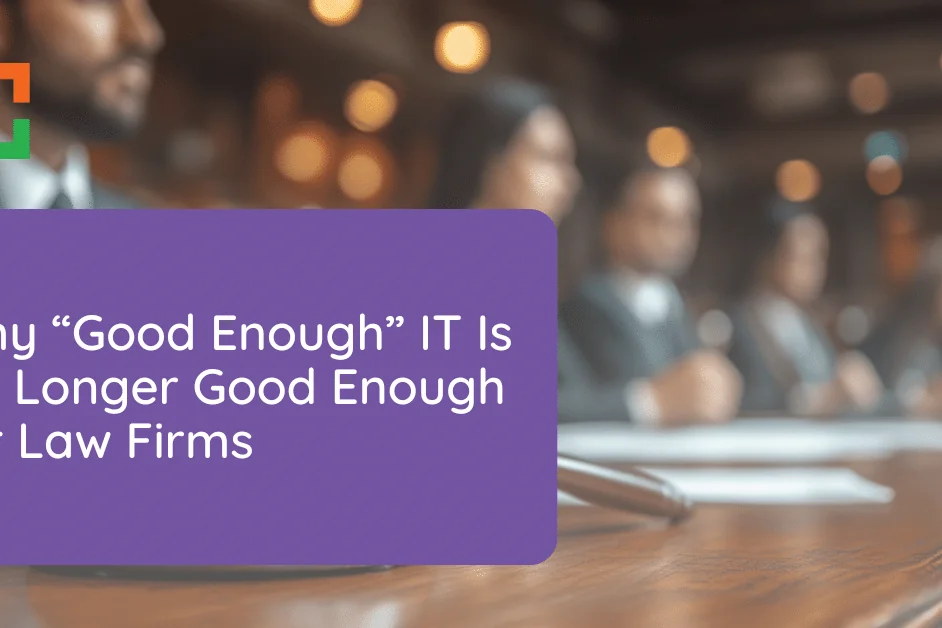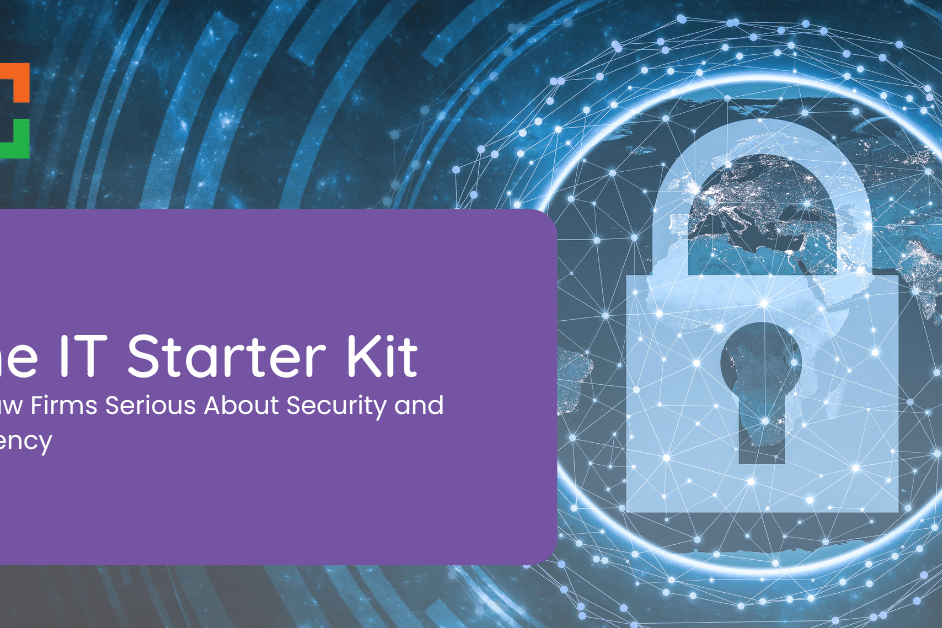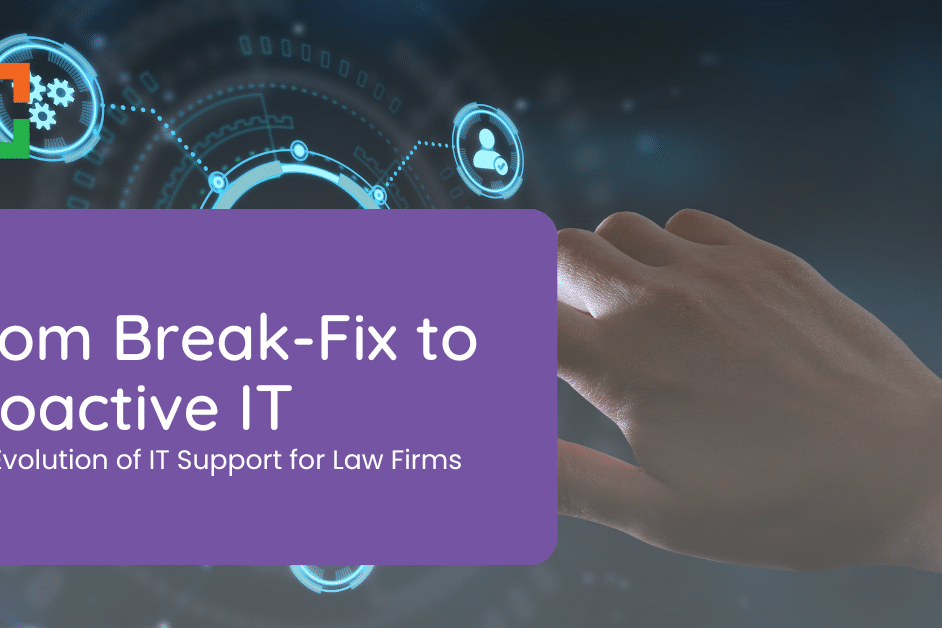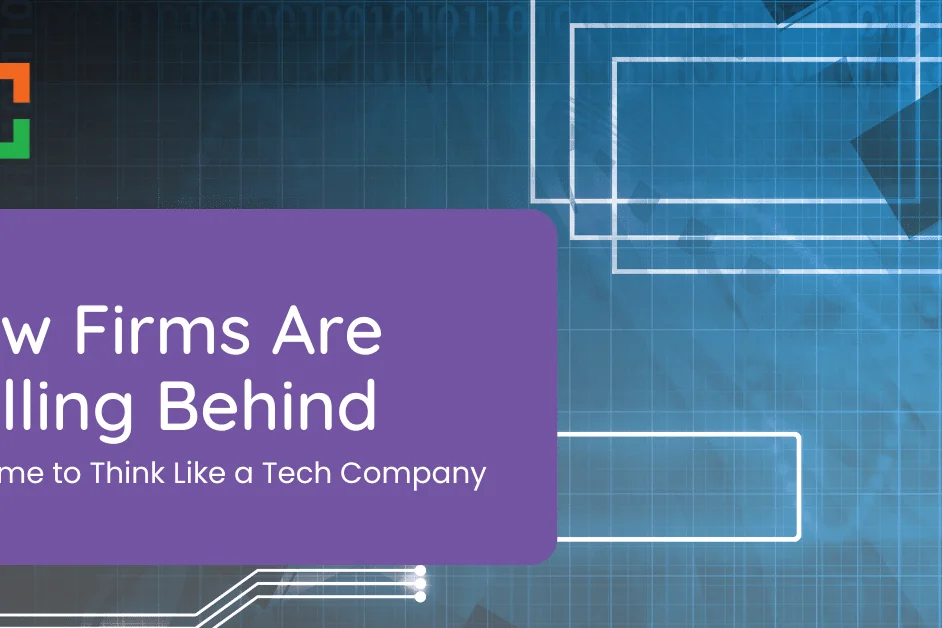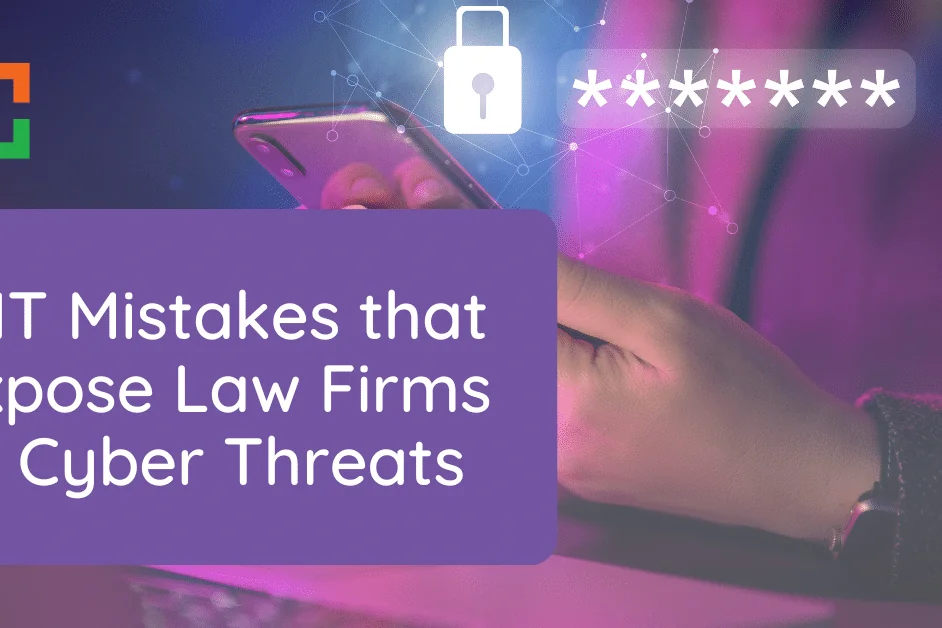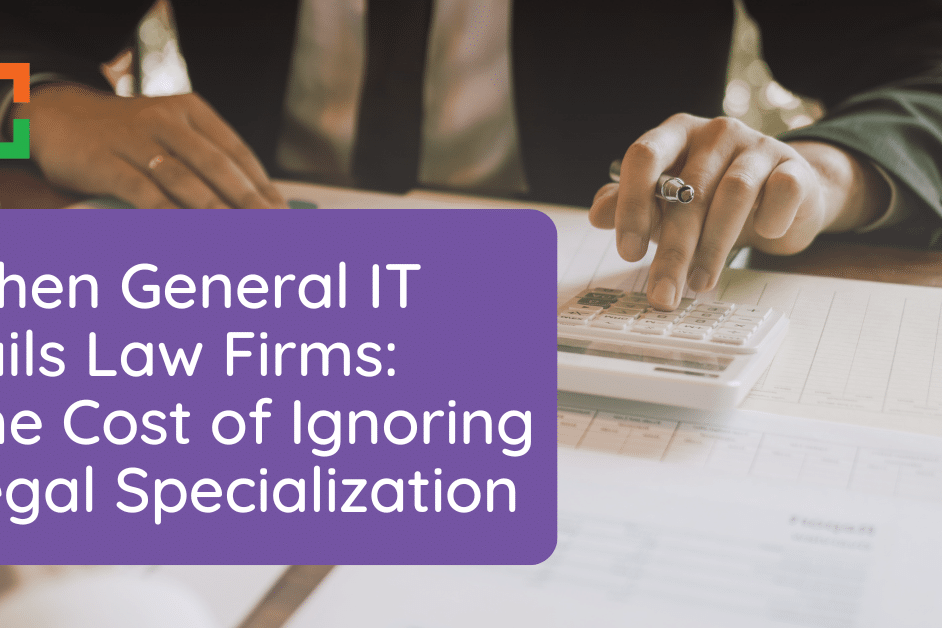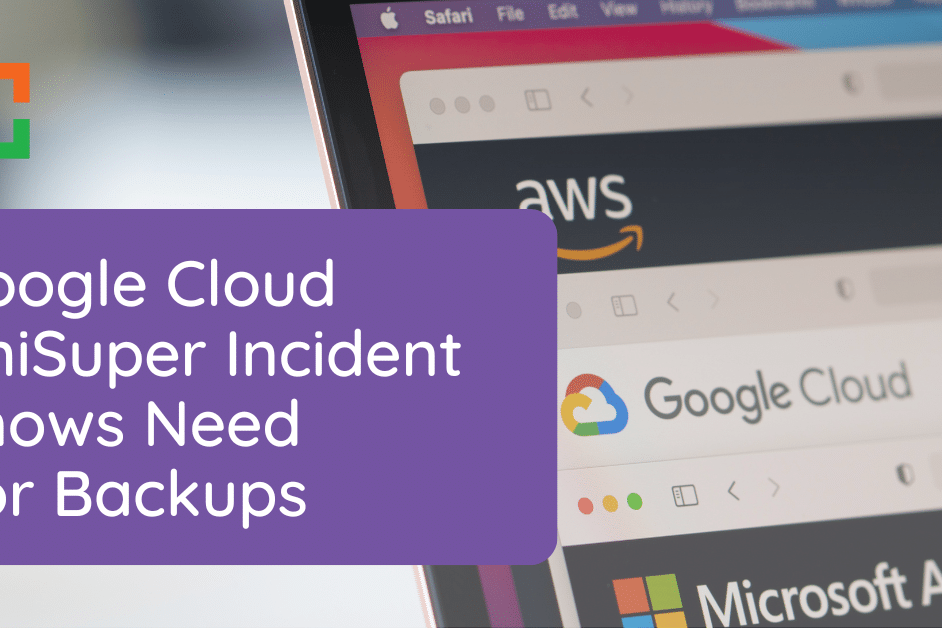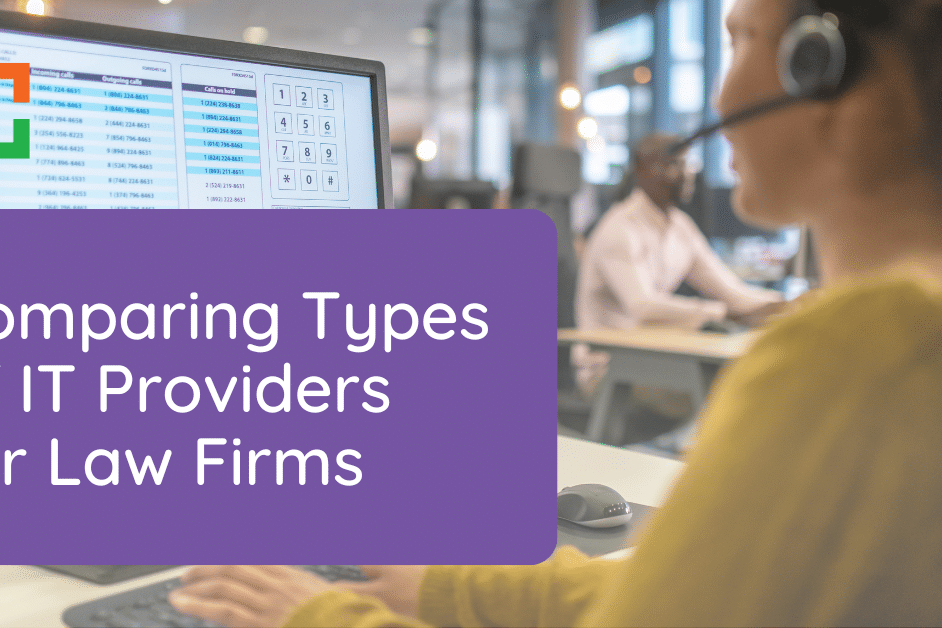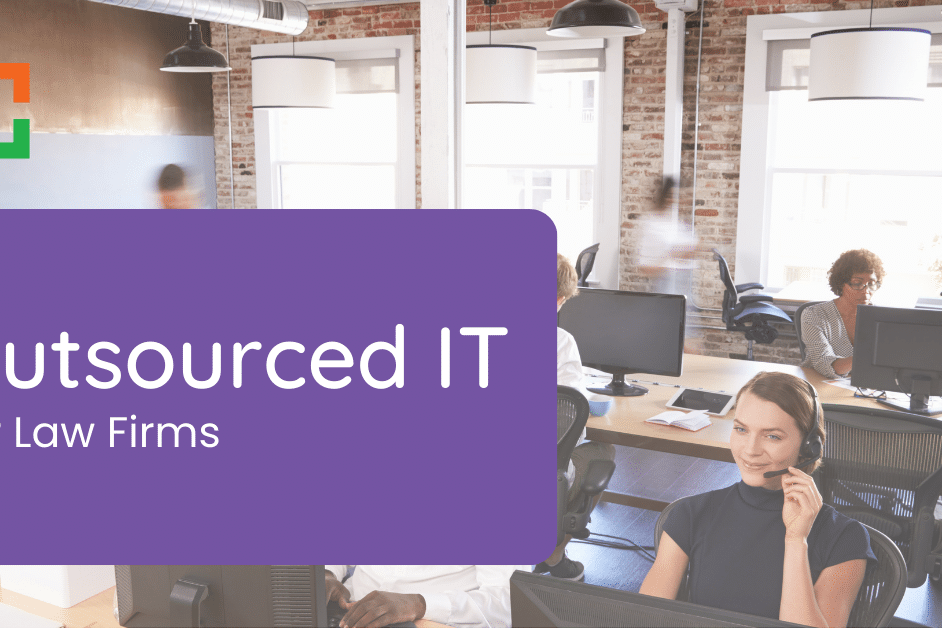Managed IT Services for Law Firms
- Nationwide IT Support.
- Expert Legal Software & Tech Support.
- Exclusively for Law Firms.
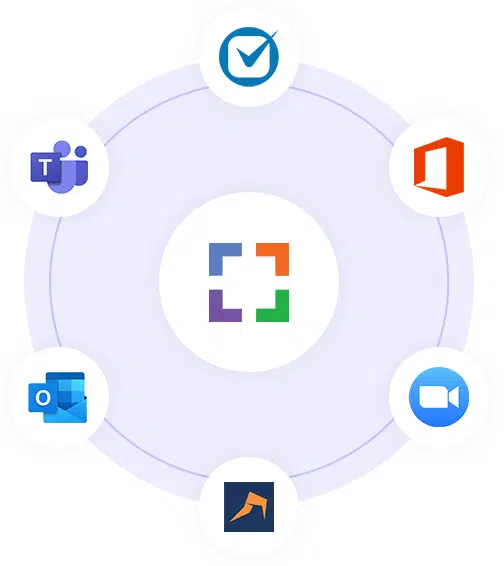
Uptime Practice™ Next
A Complete Legal Technology Package
Unlimited Support
Unlimited help desk support from our legal and IT experts.
Microsoft 365
The Microsoft 365 suite, set up to work the way your law firm does.
Backups & DR
Secure, compliant third-party backup of your Microsoft 365 data.
Legal-Centric Cloud Storage
Cloud storage that works the way law firms do - powered by LexWorkplace.
Legal Software Support
Support for your legal software: We're experts in today's modern law firm software.
Hardware & Network Support
Support for your PC's, Laptops, printers, scanners and network devices.
Desktop Management
Proactive management for your PC's: Monitoring, Windows Updates + Antivirus.
Collaboration Tools
Remote meeting and communication tools to keep your firm working together.
Technology Procurement
Help finding the right computers, devices hardware and more.
Security & Compliance
Multi-Factor Authentication, Email Encryption, Compliant Backups, Desktop Protection.
Cloud Phone System
A turn-key Hosted VOIP / PBX system designed just for law firms (Coming Soon).
Managed IT Services for Law Firms
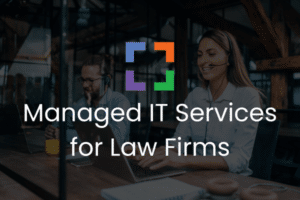
These services represent a strategic partnership, offering law firms of all sizes the ability to leverage professional IT support tailored to the unique demands of the legal industry.
From safeguarding sensitive client information to ensuring seamless day-to-day operations, Managed IT Services for law firms are not just about troubleshooting technology – they’re about creating an environment where technology empowers legal professionals to excel.
By reading this article, you will:
- Understand Managed IT Services and their role in law.
- Recognize the necessity of these services for your firm.
- Identify the key components and benefits of Managed IT.
- Learn how to integrate and tailor these services effectively.
- Know what to look for in a Managed IT Service provider.
Stay with us as we unpack the transformative power of Managed IT Services for law firms, and discover how embracing this technological ally can not only resolve your current IT challenges but also pave the way for a more innovative and resilient future in legal practice.
In This Article
- The Understanding: What are Managed IT Services for Law Firms?
- The Imperative: Why Law Firms Need Managed IT Services
- The Components: What Managed IT Services Include for Law Firms
- The Outcome: Benefits and Impact of Managed IT on Law Firms
- The Implementation: How Law Firms Can Integrate Managed IT Services
- The Selection: Choosing the Right Managed IT Service Provider
- Frequently Asked Questions: Managed IT Services
The Understanding: What are Managed IT Services for Law Firms?
Lawyers are not tech experts, and that’s okay!
Managed IT Services for law firms encompass a comprehensive range of technology-related support and services managed by an external provider.
These services are designed to handle the day-to-day maintenance, operation, and support of a law firm’s IT infrastructure, ensuring that lawyers and their staff can focus on their clients and cases without being hindered by technical issues.
At the core, Managed IT Services for law firms typically include:
- Proactive Monitoring and Maintenance: Continuous oversight of the firm's IT environment to anticipate and resolve issues before they impact operations.
- Help Desk Support: Ready access to IT professionals who can provide immediate assistance with technology-related questions or problems. In the case of a legal-specific Managed IT provider, this will include deep knowledge and support of your legal software.
- Strategic IT Planning: Guidance on using technology to achieve business goals, including advice on new technologies, system upgrades, and IT budget planning.
- Security Management: Protecting sensitive legal data through robust cybersecurity measures, including threat monitoring, intrusion prevention, and employee cybersecurity training.
- Compliance and Governance: Assisting law firms in meeting the legal industry's strict compliance standards for data protection and privacy.
- Data Backup and Recovery: Ensuring that all the firm's data is securely backed up and can be quickly restored in the event of data loss or a cybersecurity incident.
Want to Learn More About Getting Managed IT Services for Your Law Firm?
Get in Touch!
By entrusting these functions to a specialized provider, law firms can benefit from the expertise of IT professionals who understand the unique needs and challenges of the legal sector. This partnership allows law firms to leverage technology more effectively to enhance their services, improve client satisfaction, and ultimately, drive business success.
In the following sections, we’ll delve deeper into why these services are indispensable for today’s law firms, what specific services are most beneficial, and how they can positively impact your practice.
Stay tuned to learn how Managed IT Services can become your firm’s most trusted ally in the digital age.
Would You Rather: Serve Clients or Manage IT?
Use Uptime Practice Next for:
- Unlimited IT Support
- Legal Software Consultation
- Cloud Storage
- Security Protection
- Data Backups
- and More!
The Imperative: Why Law Firms Need Managed IT Services
In an industry where precision and confidentiality are paramount, the role of technology cannot be overstated. Law firms are entrusted with sensitive data that require the utmost protection and systems that need to operate without fail.
Managed IT Services are not just a convenience; they are a necessity for several compelling reasons:
Downtime & Practice Interruption
With how busy law firms are, there's no space to account for downtime.
With any downtime, big or small, your practice can come to screeching halt if your technology isn't providing you with what you need. Technology is meant to assist you — not hinder your ability to work or your productivity at any level.
Cybersecurity Threats
Due to the sensitive nature of information handled by law firms, legal practices face significant risks from cyber threats, data breaches, and technology failures.
Managed IT Services provide a security blanket with their proactive monitoring and rapid response capabilities, reducing the risk of costly downtime and data loss.
Regulatory Compliance
The legal sector is bound by strict regulatory compliance standards.
Firms face the challenge of keeping up with evolving regulations, a task that Managed IT Services can streamline by ensuring systems are up-to-date with the latest compliance requirements.
Technical Expertise
IT is not the core competency of most law firms.
Having access to specialized IT professionals through a managed service means that law firms can benefit from expertise that would be costly or impractical to develop in-house.
Operational Demands
Efficiency is critical in legal practice, where time is often billable.
The challenge of maintaining seamless operations is met by Managed IT Services through optimizing IT processes, reducing downtime, and enabling staff to work more effectively.
Scalability Concerns
As a firm grows, its IT infrastructure must grow with it.
Law firms face the challenge of scaling their technology without interrupting service or incurring unnecessary costs. Managed IT Services offer scalable solutions that can be adjusted as the firm's needs change.
Core Business Focus
Law firms must concentrate on their primary objective — legal services.
The challenge of balancing IT management with client work is resolved by Managed IT Services, allowing legal professionals to focus on advocacy and client relationships without being sidetracked by IT issues.
By transforming these challenges into managed solutions, law firms can fortify their practices against the ever-evolving demands of the legal landscape.
With a clearer understanding of these imperatives, we will next explore the specific Managed IT Services components that directly respond to and mitigate these challenges, laying the groundwork for a resilient and efficient practice.

Uptime Practice was a true miracle when the pandemic struck. We moved to Uptime Practice and were working immediately.
Todd Tracy – The Tracy Law Group, PLLC
The Components: What Managed IT Services Include for Law Firms
Managed IT Services for law firms are not a monolithic offering but a suite of services that can be tailored to the specific needs of a legal practice.
Understanding these components is key to recognizing how they can serve as solutions to the challenges previously discussed.
Here are the essential services that comprise a comprehensive Managed IT package for law firms:
1
Proactive Monitoring, Maintenance, and Help Desk Support
This includes 24/7 monitoring of IT systems to preemptively identify and resolve issues, regular maintenance to ensure optimal performance, and immediate access to help desk support for troubleshooting and resolving IT-related problems.
This ensures that staff can maintain productivity without technical delays.
Reactive IT support, which addresses issues as they arise, often leads to downtime and potential data loss, disrupting a law firm’s operations.
In contrast, proactive IT support anticipates and mitigates issues before they impact the firm, ensuring smoother, uninterrupted service and better overall system health.
2
Strategic IT Planning and Consulting
Aligning IT infrastructure with business objectives is crucial for growth and efficiency.
Strategic planning helps firms stay ahead of tech trends, manage IT budgets effectively, and ensure that their technology investments deliver the best return.
3
Comprehensive Cybersecurity and Compliance Management
The legal sector has stringent data protection requirements.
For this reason, robust cybersecurity measures are essential to protect against breaches, maintain client trust, and ensure compliance with industry regulations.
4
Data Management, Backup, and Disaster Recovery
Effective data management and backup are critical for safeguarding client information.
Disaster recovery plans are vital for minimizing the impact of data loss or cyber incidents, ensuring the firm can quickly resume operations.
Related – Law Firm Disaster Recovery: Law firms must be proactive in their approach to law firm disaster recovery & business continuity planning. Read this article to learn more.
5
Hardware, Software, and Vendor Management
Keeping software and hardware up-to-date is key to operational efficiency.
Vendor management ensures that third-party services and products are aligned with the firm’s needs and are procured at optimal terms.
Consider, for example, server ownership and maintenance. The graph below exhibits a primary reason for why maintaining servers in-house is becoming a strategy of the past.
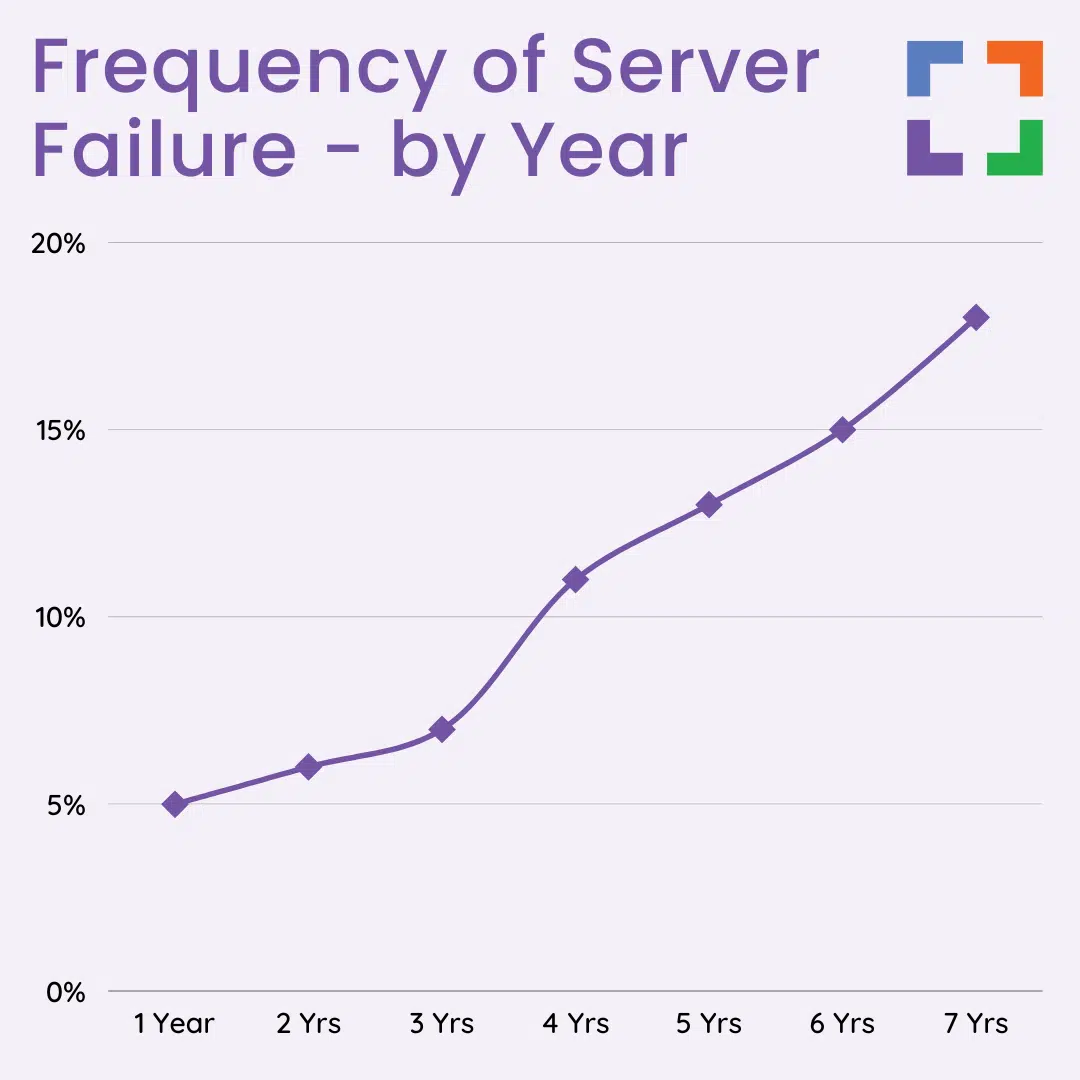
Owning servers is no easy feat, so you could look to your managed IT Service Provider can provide guidance on newer technologies that you could implement instead.
6
Cloud Services, Email, and Communication Systems Management
Cloud services offer flexibility and scalability, while secure email and communication systems are fundamental for confidential client communications and collaboration, both internally and with clients.
7
Training, Support, and User Access Control
Regular training helps staff utilize technology effectively and stay aware of cybersecurity risks, while access controls like multi-factor authentication are crucial for securing sensitive data against unauthorized access.
8
Legal Software Expertise and Custom Solutions
Custom solutions allow for tailored workflows, increasing efficiency and service quality.
Support for legal-specific software ensures that attorneys have the tools they need for case management, research, and document handling. For more robust document management, consider LexWorkplace for Document Management Software.
9
Technology Procurement and Infrastructure Management
Smart technology procurement saves costs and ensures that attorneys have the best tools at their disposal. Effective infrastructure management underpins the entire IT operation, ensuring reliability and the ability to scale as the firm grows.

The components of Managed IT Services are integral to a law firm’s operational integrity and strategic growth.
They ensure that the firm’s technology infrastructure is not only robust and secure but also aligned with the firm’s long-term goals.
With these services in place, a law firm is well-equipped to handle the demands of the modern legal landscape. Next, we will examine the benefits that Managed IT Services bring to the table, showcasing their impact on a law firm’s efficiency and success.
Related – Types of IT Services for Law Firms: Explore types of IT services for law firms: Understand why legal-focused support & software expertise are crucial for your law firm.
The Outcome: Benefits and Impact of Managed IT on Law Firms
Adopting Managed IT Services can be a game-changer for law firms, offering a spectrum of strategic advantages that extend beyond basic IT functions.
Here’s an optimized look at the key benefits that law firms can expect:
Financial Predictability and Cost Efficiency
Managed IT Services streamline a law firm's financial planning by transforming capricious IT expenses into a predictable monthly outlay.
This model not only facilitates more accurate budgeting but also typically results in cost savings by reducing the need for a full-time, in-house IT staff and minimizing the financial impact of unexpected IT failures.
Elevated Productivity
Delegating IT management to external experts liberates the firm’s personnel from the time-intensive demands of IT troubleshooting and maintenance.
This shift allows attorneys and support staff to concentrate on their primary legal responsibilities, thereby enhancing productivity and increasing the potential for billable work.
Risk Management

This is done by keeping the firm’s infrastructure updated with the latest security measures and ensuring compliance with the ever-changing landscape of legal regulations.
As you know, security is of the utmost importance with law firms and the data they possess.
So, don't take this one lightly!
Agility and Scalability
The flexibility provided by Managed IT Services allows law firms to swiftly adapt to technological advancements, evolving client needs, and fluctuating market dynamics without the need to revamp their internal IT systems.
Business Continuity Assurance
Dependable Managed IT Services mean that law firms benefit from comprehensive business continuity strategies, significantly reducing the risk of operational halts due to IT disruptions and ensuring seamless service to clients.
Capital Conservation
By leveraging Managed IT Services, law firms can significantly reduce or even eliminate the capital investments typically associated with developing and maintaining an in-house IT infrastructure, as these services operate on an operational expenditure model.
Typical costs of Managed IT Services: $120-150/User/Month.
For example, take a look at Uptime Practice Next Pricing.
Strategic Focus
With IT concerns handled by experts, law firm leadership can dedicate their attention to strategic growth and client relationship management, confident that the technological backbone of their firm is robust and responsive.
Technological Edge
Managed IT providers grant law firms access to the latest technology and innovations.
This advantage ensures that firms remain at the forefront of legal tech, empowering them to offer sophisticated, tech-driven solutions to their clients.
Related – Virtual Desktops for Law Firms: This technological advancement allows law firms to consider the cloud in a way that’s simple, accessible, and worthwhile.
By embracing Managed IT Services, law firms not only optimize their current operations but also invest in their future, ensuring they have the technological support to grow and succeed in an increasingly complex and competitive field.
The next section will offer insights into selecting a Managed IT Service provider that aligns with these strategic goals.
The Implementation: How Law Firms Can Integrate Managed IT Services
The successful integration of Managed IT Services into a law firm’s operations is a critical step that requires careful planning and execution.
Here’s a guide to the implementation process you can expect:
Step 1: Initial IT Assessment and Infrastructure Audit
Begin with a comprehensive review of the firm’s current IT infrastructure, policies, and server setup.
This assessment will identify areas for improvement and help the Managed IT provider understand the firm’s unique needs, including the reliance on server-based software.
Step 2: Developing a Strategic IT Roadmap
Collaborate with the Managed IT provider to create a strategic IT plan that aligns with the firm’s business goals.
This roadmap should detail the implementation process, including timelines for server transition, whether it’s moving to a cloud-hosting solution or planning for server elimination.
Server Transition Strategies:
- Cloud-Hosting Solutions: For firms with on-premises servers, consider migrating to a cloud-hosting platform like Uptime Practice Foundation. This transition facilitates remote access, enhances security, and reduces physical server maintenance.
- Server Elimination Plan: Alternatively, develop a plan with your Managed IT provider to phase out on-premises servers. This involves evaluating software needs, selecting cloud-based alternatives, and managing the migration process to a serverless environment.
In Love with a Server-Based Software?
Use Uptime Practice to Host It!
- Get Your Firm's Software to the Cloud
- Access it From Anywhere
- Avoid Server Maintenance
- Pursue a Virtual Law Firm
- Get Included Support
Step 3: Customizing IT Solutions
Collaborate with the Managed IT provider to create a strategic IT plan that aligns with the firm’s business goals.
This roadmap should detail the implementation process, including timelines for server transition, whether it’s moving to a cloud-hosting solution or planning for server elimination.
Step 4: Transition and Onboarding
Manage the onboarding process to ensure minimal disruption.
This includes setting up new systems, migrating data from servers to the cloud, and integrating existing technology with new IT solutions.
Step 5: Staff Training and Support
Provide comprehensive training for all staff members on the new cloud-based systems and any changes in IT processes.
Ongoing support should be available to address any questions or issues that arise during and after the transition.
Related – IT Support for Law Firms: Understanding your options for support is essential to knowing what to expect when something hits the fan — or better yet, before something does.
Step 6: Implementing Security Measures
As part of the server transition, implement robust security protocols, including firewalls, encryption, and multi-factor authentication, to protect the firm’s data during and after the migration.
Step 7: Continuous Monitoring and Proactive Maintenance
Once the Managed IT Services and new server solutions are in place, continuous monitoring of the IT infrastructure is crucial.
Proactive maintenance helps prevent downtime and ensures efficient operation of cloud-based systems.
Step 8: Regular Performance Reviews and Adjustments
Schedule regular check-ins with the Managed IT provider to review the performance of the IT services, including the success of the server transition, and make adjustments as needed.
Step 9: Feedback Loop and Iterative Improvement
Establish a feedback loop with the Managed IT provider to ensure that the services, particularly the new server or cloud-hosting solutions, meet the firm’s expectations and facilitate continuous improvement.

By incorporating server management and transition strategies into the broader implementation of Managed IT Services, law firms can modernize their IT infrastructure, enhance their operational capabilities, and position themselves for future growth and success.
Finally, let’s take a look at the next steps to assist your process of evaluating Managed IT Service Providers.
The Selection: Choosing the Right Managed IT Service Provider
Selecting a Managed IT Service provider is not just about outsourcing technical needs — it’s about finding a partner that can navigate the specific challenges and requirements of the legal industry.
Your choice should be a provider that not only ensures operational excellence but also appreciates the nuances of legal workflows, client confidentiality, and the regulatory landscape.
Here are five focused considerations to guide your law firm in making this critical decision:
- Legal Industry Specialization: Seek a provider with proven expertise in the legal sector, knowledgeable about the ecosystem of legal IT, including case management systems, eDiscovery platforms, and the critical importance of compliance with industry-specific regulations.
- Comprehensive Legal IT Services: Ensure the provider can offer a full range of services designed for law firms, such as 24/7 technical support, robust network management, and specialized support for legal applications and software.
- Scalability and Flexibility: The provider must be capable of adjusting their services to match the fluctuating demands of your firm's caseload and the inevitable changes as your practice grows, ensuring that your IT infrastructure can expand and adapt without hiccups.
- Security and Legal Compliance: Opt for a provider that prioritizes the stringent security measures and adherence to legal compliance standards necessary to safeguard client information and maintain the integrity of sensitive data.
- Clear and Predictable Pricing: Look for transparent pricing structures that are in sync with the financial practices of legal firms, providing predictability in costs and aiding in effective budgetary planning.
Related – Outsourced IT Services for Law Firms: Consider the benefits in outsourcing your IT to save your firm time, money, and effort. Learn more.
By focusing on these key areas, your law firm can align with a Managed IT Service provider that will not only meet the current technological needs but also support the strategic vision and growth of your practice.
Frequently Asked Questions: Managed IT Services
Managed IT Services for law firms are specialized IT support and services tailored to the unique needs of the legal industry, including 24/7 help desk support, network management, cybersecurity, compliance, and management of legal software applications.
Managed IT Services benefit law firms by enhancing data security, improving operational efficiency, ensuring compliance with legal industry regulations, providing predictable IT costs, and allowing lawyers to focus on their core legal practice rather than IT management.
Yes, Managed IT Services can help law firms meet their compliance requirements by ensuring that their IT systems are up-to-date with the latest security protocols and that data is managed in accordance with relevant legal industry regulations.
When selecting a Managed IT Service provider for your law firm, look for industry expertise, a comprehensive range of IT services, scalability, a strong track record in cybersecurity and compliance, and transparent pricing.
Managed IT Services can be very cost-effective for small to medium-sized law firms as they provide access to a full team of IT experts and advanced technology without the overhead costs of an in-house IT department.
Transitioning to Managed IT Services typically involves an initial IT assessment, development of a strategic IT roadmap, customization of services to the firm’s needs, and a structured onboarding process with minimal disruption to the firm’s operations.
No, your law firm will not lose control over its IT. A reputable Managed IT Service provider works in partnership with your firm, keeping you informed and involved in decision-making processes regarding your IT infrastructure.
Managed IT Services handle data security and client confidentiality by implementing robust security measures such as firewalls, encryption, and multi-factor authentication, and by adhering to strict compliance standards to protect sensitive information.
Uptime Practice:
The IT & Cloud Platform for Law Firms.
Uptime Practice is a suite of Managed IT and cloud services, made exclusively for law firms.
Practice Next
Technology + Legal Software Support for Modern Law Firms
Practice Next is a suite of Managed IT, Legal Software Support, and Cloud Essentials, made just for law firms.
-
Practice Next is a suite managed IT, technology essentials and legal software support.
-
Practice Next includes unlimited IT and legal software support, Microsoft 365, legal-centric cloud storage and more.
-
Practice Next pairs great with cloud-based legal software such as Clio Manage, CosmoLex, MyCase and more.
Practice Go
Cloudify Your Legal App
Does your law firm already have a cloud strategy, but have one premise-based application still running on onsite servers? Practice Go is for you.
- With Practice Go, we effectively turn your desktop/server- based legal software into a cloud application (a Published App), freeing your firm from the limitations of traditional software.
- Practice Go can cloudify your PCLaw, Time Matters, Tabs3, ProLaw, Juris, QuickBooks and more.
Practice Foundation
Complete Private Cloud for Law Firms
If your law firm needs a central, secure cloud platform for all of your legal software, documents and data, Practice Foundation is for you.
-
Practice Foundation is an end-to-end cloud platform that will host all of your firm's applications and documents, and will optionally include Office 365 + unlimited IT support. Everyone in your firm logs into a Virtual Desktop where they'll find all of their apps and docs.
-
Practice Foundation works with PCLaw, Time Matters, Tabs3, ProLaw, Juris, QuickBooks, Timeslips, TrialWorks, Adobe Acrobat and more.
Not Sure Which Edition You Need?
No problem. Check out our quick Comparison Chart for Uptime Practice, or Get in Touch to talk with our sales team.

Dennis Dimka
As the founder and CEO of Uptime Legal Systems, I've had the privilege of guiding our company to become a leading provider of technology services for law firms.
Our growth, both organic and through strategic acquisitions, has enabled us to offer a diverse range of services, tailored to the evolving needs of the legal industry.
Being recognized as an Ernst & Young Entrepreneur of the Year Finalist and seeing Uptime Legal ranked among the Inc. 5000 list of fastest-growing private companies in America for eight consecutive years are testaments to our team's dedication.
At Uptime Legal, we strive to continuously innovate and adapt in the rapidly evolving legal tech landscape, ensuring that law firms have access to the most advanced and reliable technology solutions.
Related Posts
January 20, 2025
5 IT Mistakes that Expose Law Firms to Cyber Threats
September 26, 2024
Outsourced but Onshore: Navigating Law Firm IT Regulations
June 27, 2024
The Impact of Remote Work on Law Firm IT
May 29, 2024
The Real Value of Legal Specialty in IT Services
April 24, 2024
Comparing Types of IT Providers for Law Firms
February 28, 2024
Law Firm Disaster Recovery and Business Continuity Planning
February 22, 2024
Types of IT Services for Law Firms
February 8, 2024
Legal Data Management & Storage Solutions for Law Firms
February 1, 2024
How to Choose the Right IT Provider – A Guide for Law Firms
January 9, 2024
VoIP for Law Firms
December 15, 2023
Cybersecurity for Law Firms
December 8, 2023
Managed Cloud Services for Law firms
November 15, 2023
Outsourced IT for Law Firms
October 11, 2023
IT Support for Law Firms
June 17, 2019
Law Firm IT – What Are Your Options?
June 10, 2019








